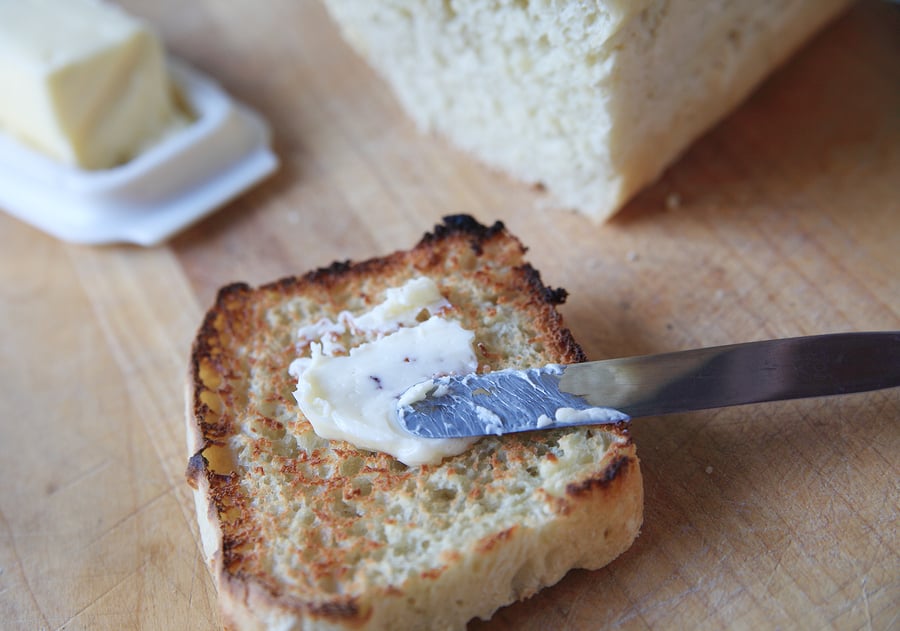Do you spread butter or margarine on your toast?
As Unilever, which owns some of the UK’s most famous household brands, has announced plans to sell its margarine business, including Flora and Stork, we discuss butter vs margarine.
Butter and margarine serve the same purpose.
They are used for cooking, baking and as spreads. Butter has been a dietary staple for centuries. It is made by churning the fatty portion of cow’s milk until it turns into the final product… butter.
Margarine is totally different. It is a highly processed food that was invented to replace butter. The primary ingredient is vegetable oil along with emulsifiers, colorants and various artificial ingredients. Vegetable oil is liquid at room temperature. This is why margarine is often hydrogenated, which gives it a harder consistency and extends shelf life. Hydrogenation also turns some of the vegetable oils into trans fats.
Years ago, butter was a no-no. Vegetable-oil-based margarines surged in popularity as doctors began to understand the dangers of saturated fat. However more recently the ‘experts’ changed their views and negative claims about butter have been reversed.
The butter-versus-margarine debate is a slippery subject. Some margarines have unhealthy trans fats, while others have confusing health claims. Meanwhile, some say butter is an “all-natural” choice.
So what are your views? Do you prefer to use butter or margarine? Do you trust cows more than chemists? Have you switched over the years? Do you simply just prefer the taste of butter? What is your spread of choice?





















